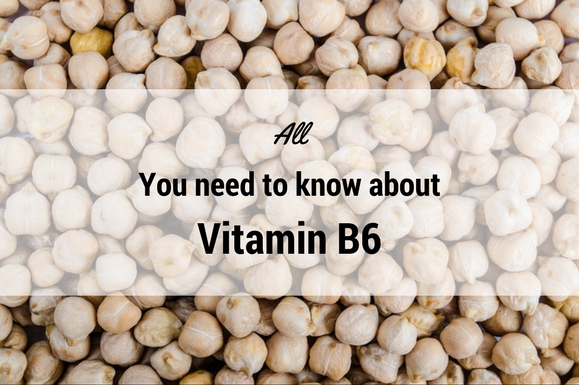Vitamin B6 is one of the most important B Vitamin for normal functioning of our body. It is part of the Vitamin B complex group and serves as a cofactor in many enzyme reactions in amino acid, glucose and lipid metabolism.
Contents
Physiological Functions of Vitamin B6
Vitamin B6 is a very important cofactor in metabolism of amino acid. Lower Vitamin B6 has been associated with inflammatory bowl disease and elevated levels of C-Reactive protein, indicating active disease in the body. Vitamin B6 is found in multiple forms in body and that is why it is also called Vitamers. Vitamin B6 can have any of the following forms:
- Pyridoxal-5’-phosphate (P-5-P or PLP)
- Pyndoxal (PL)
- pyridoxine (PN)
- 4-pyridoxic acid (4-PA)
Deficiency of Vitamin B6
Deficiency of Vitamin B6 can occur due to the following reasons
- Decreased supply of Vitamin B6 due to processed food. Processed food looses Vitamin B6 during processing.
- Loss in the urine due to diuretics
- Increased demand due to pregnency
- Decreased absorption due to certain medication such as Oral Contraceptives, anti-tuberculosis, hypertension (Hydralazine) and antirheumatic medication
- Smoking
- exposure to herbicide, food ripening agents, food colours
Health Concerns due to Vitamin B6 deficiency
Vitamin B6 deficiencies affect the metabolism of polyunsaturated fatty acids and can result into following health concerns:
- Seborrheic dermatitis, cheilosis and glossitis
- Decrease in neurotransmitters leading to irritability, depression and confusion
- Decrease hemoglobin synthesis leading to microcytic anemia
Assessment of Vitamin B6 Status (deficiency Indication)
Plasma Homocysteine > 15 nmol/mL
Urinary Homocusteine > 25 pg/mg creatinine
Urinary xanthurenate, kynurenate
EGOT index > 1.5
EGPT index > 1.25
Plasma PLP < 30 nmol/L
Supplementation of Vitamin B6
Adult: 50 to 200mg/Day
Best / Most Bio-available form of Vitamin B6
Pyridoxal-5’-phosphate (P-5-P or PLP)
Dietary Sources of Vitamin B6
Dietary sources of Vitamin B6 are:
- Chickpeas
- Fish (Tuna, Yellowfin, Salmon)
- Beef liver
- Turkey
- Chicken breast
- Potatoes
- Raisins
- Starchy vegetables
- Fruit


